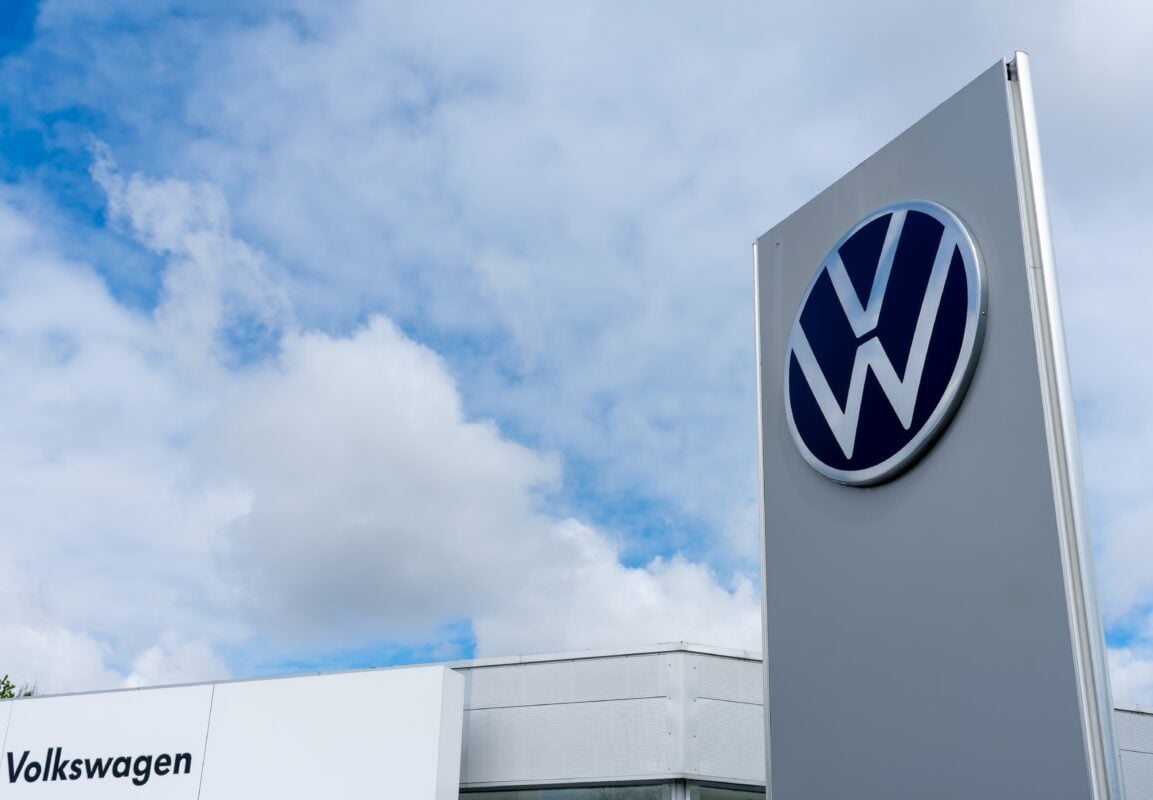TLDRs;
Contents
- Volkswagen extends AWS partnership for five years, using AI to optimize global car production and reduce costs.
- The digital production platform currently operates in 43 factories, with room to expand across 114 global sites.
- Automakers like Volkswagen are adopting multi-cloud strategies, choosing providers based on strengths in specialized use cases.
- Scaling AI in manufacturing remains complex, but VW already reports tens of millions in savings from partial deployment.
Volkswagen has renewed its collaboration with Amazon Web Services (AWS) for an additional five years, aiming to accelerate the use of artificial intelligence (AI) in its global production network.
The extension underscores the carmaker’s focus on boosting efficiency and cutting operational costs as it navigates a competitive automotive landscape.
Currently, Volkswagen’s digital production platform, co-developed with AWS, is active at 43 manufacturing sites across Europe, North America, and South America. With the company operating more than 114 production facilities worldwide, the partnership still has considerable room to scale, offering the potential for even greater cost savings and streamlined operations.
AI at the core of Volkswagen’s strategy
At the heart of this partnership is Volkswagen’s ambition to embed AI-driven tools across its assembly lines. The platform integrates data from various plants, enabling real-time monitoring of processes, predictive maintenance, and improved quality control. By optimizing workflows, the carmaker expects to save tens of millions of euros over the medium term.
AWS is helping @VWGroup transform vehicle production for the AI age through our extended 5-year collaboration. 43 global factories are already connected to the Digital Production Platform, Volkswagen’s factory cloud. ☁️ https://t.co/3znBTbwDQG #AIinManufacturing… pic.twitter.com/zFRjqKKi7q
— AWS Newsroom (@AWSNewsroom) August 28, 2025
Volkswagen’s emphasis on AI-powered production reflects broader trends in the auto industry, where digital tools are no longer optional but a strategic necessity.
The deployment of these technologies allows manufacturers to improve efficiency, minimize downtime, and adapt quickly to evolving supply chain challenges.
Multi-cloud adoption in the auto sector
Volkswagen’s deeper integration with AWS also highlights the shift among automakers toward multi-cloud strategies. While the German company initially partnered with Microsoft in 2018 to develop its automotive cloud platform, it has since expanded its ecosystem to include specialized providers.
By using AWS for manufacturing optimization, Volkswagen leverages Amazon’s strengths in data analytics and AI infrastructure.
This approach mirrors moves by other industry players. Renault teamed up with Google Cloud in 2022, while Ford struck a deal with Google to enhance innovation and digital capabilities. The trend illustrates how automakers are diversifying their cloud partnerships to match specific operational needs rather than locking themselves into single-vendor ecosystems.
Scaling challenges and future prospects
Despite progress, Volkswagen’s AI rollout is still limited to 38% of its global plants, underscoring the challenge of scaling digital transformation at an enterprise level.
Integrating AI into large-scale manufacturing requires not only advanced infrastructure but also significant changes to production processes, sensor integration, and workforce training.
Nevertheless, the results so far suggest vast untapped potential. Even with less than half of its facilities connected, Volkswagen is already reaping multi-million-euro savings. As the remaining sites adopt the platform, the company could unlock efficiencies on a much larger scale, positioning itself strongly against competitors facing similar cost pressures.
The cautious rollout also demonstrates Volkswagen’s commitment to balancing innovation with stability. Rather than risking disruptions to ongoing operations, the company is gradually expanding its digital platform to ensure long-term resilience and competitiveness in an industry undergoing rapid technological transformation.


